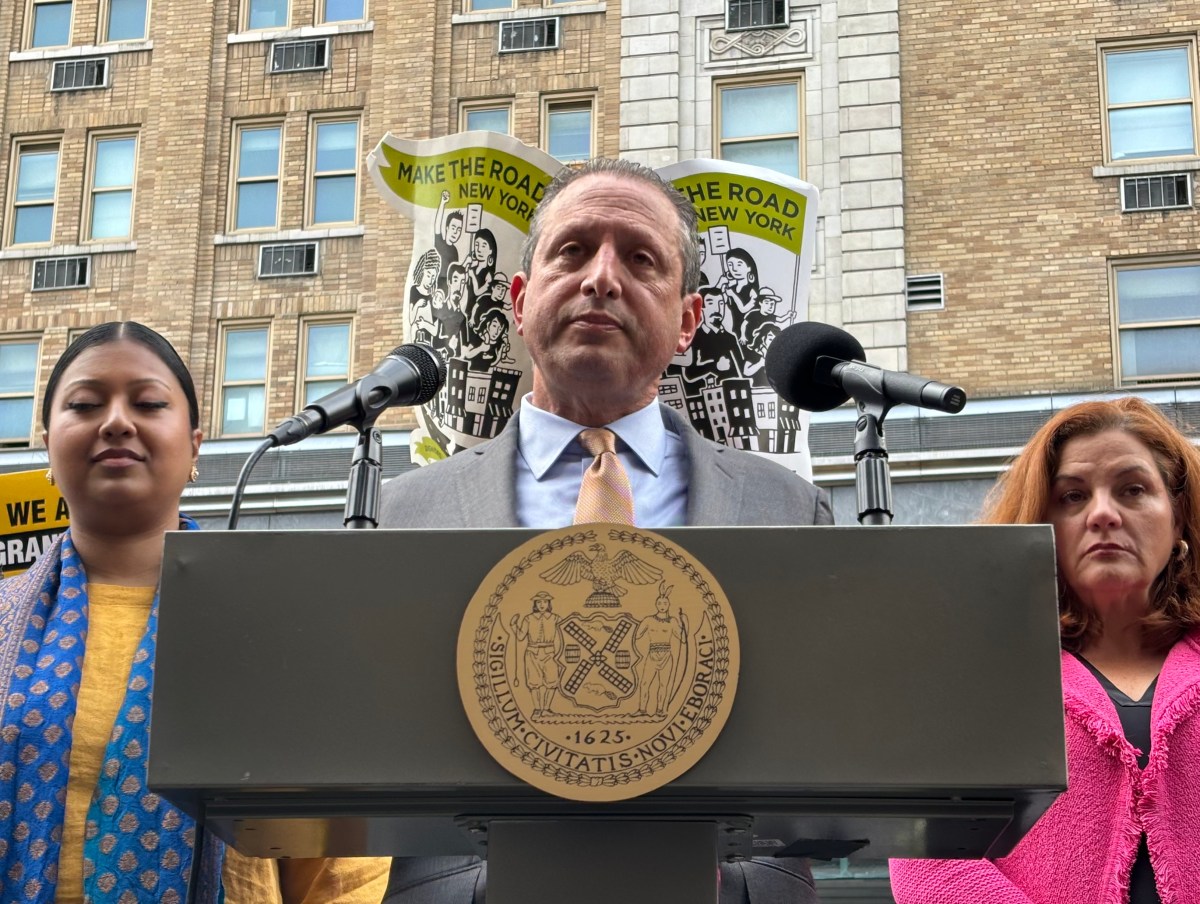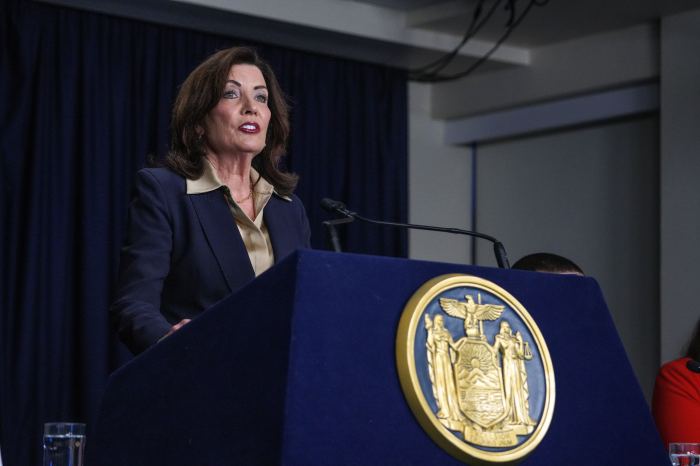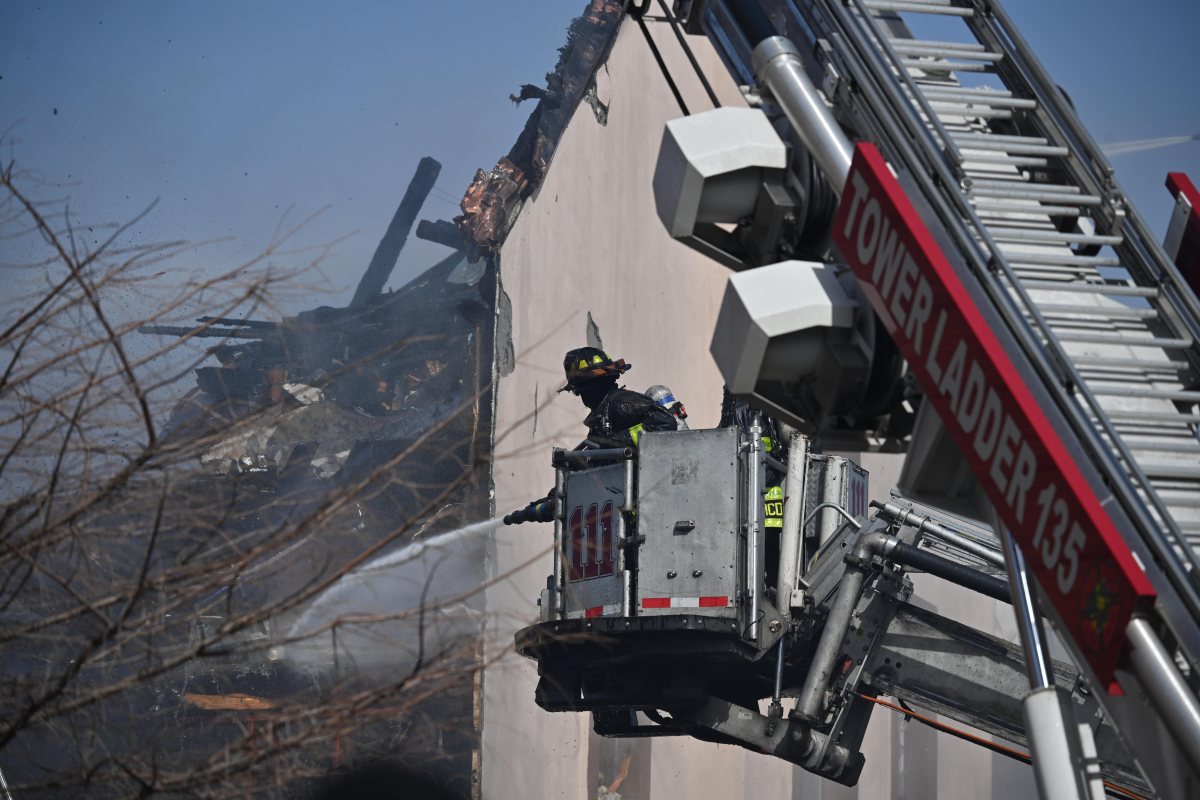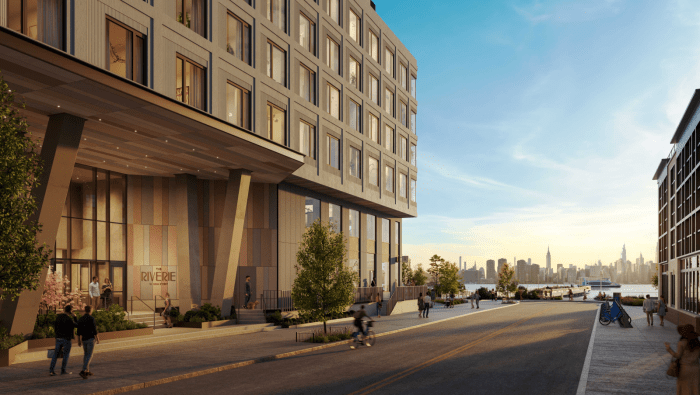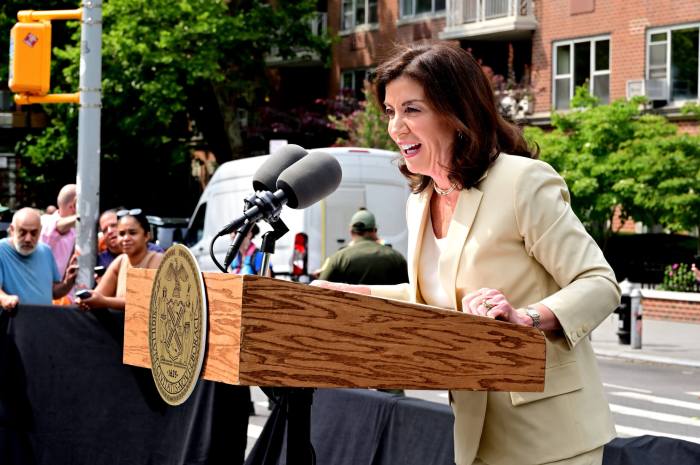City Comptroller Brad Lander on Wednesday joined a group of state attorneys general from across the country in urging the Biden administration to extend deportation protections for migrants who experience or witness workplace discrimination.
The coalition sent a letter to the US Department of Homeland Security calling on the agency to extend the Deferred Action for Labor Enforcement (DALE) program from its current 2-year period to 4 years. The group is led by Massachusetts Attorney General Andrea Joy Campbell, Illinois Attorney General Kwame Raoul and the Seattle Office of Labor Standards, and also includes state Attorney General Letitia James.
Lander, who has been a staunch advocate for the 200,000 plus undocumented migrants who have arrived in the Big Apple since 2022, said the action is about making it easier to combat workplace exploitation against migrant laborers.
“My office enforces New York City’s prevailing wage law, and we often see undocumented immigrants worried about retaliation and immigration enforcement,” Lander said in a statement. “By extending their protection period, we can empower workers to come forward about labor violations and abuses without fear and hold their employers accountable.”
The program, according to the comptroller’s office, shields noncitizens who are exploited on the job, witness workplace rights violations or are otherwise involved in a labor investigation. It also allows migrants with the protections to apply for legal work status, intended to help them ascend from the underground economy where exploitation is most common.
Undocumented migrants are particularly vulnerable to workplace discrimination as they often work low-paying jobs, often in the construction and food service industries. Many work off-the-books for their employers, the coalition says in its letter, and result in many of these workers being paid rates below minimum wage; having their pay delayed or not provided at all; and not receiving overtime.
Currently, DALE protections last just 2 years, after which workers must apply for an extension to keep them in place. But the coalition is pushing for an extension to at least 4 years — arguing that employment discrimination cases often extend beyond 2 years.
“The program’s 2-year limited duration necessarily means that some workers’ protections may or will expire during the course of our investigations, and workers will once again be vulnerable when that happens,” the letter reads.
The coalition argues migrant workers know investigations often drag on past 2 years and shy away from participating in the probes out of fear they could be at risk of deportation once the time period elapses.
“Under DHS’s current deferred action program, workers are likely to lose the protection under the program at some point during the investigation,” the letter reads. “Even those who choose to assist initially may eventually lose the program’s protections and either withdraw their cooperation out of fear of deportation, or actually get deported. These consequences may result in our agencies losing key witnesses.”



